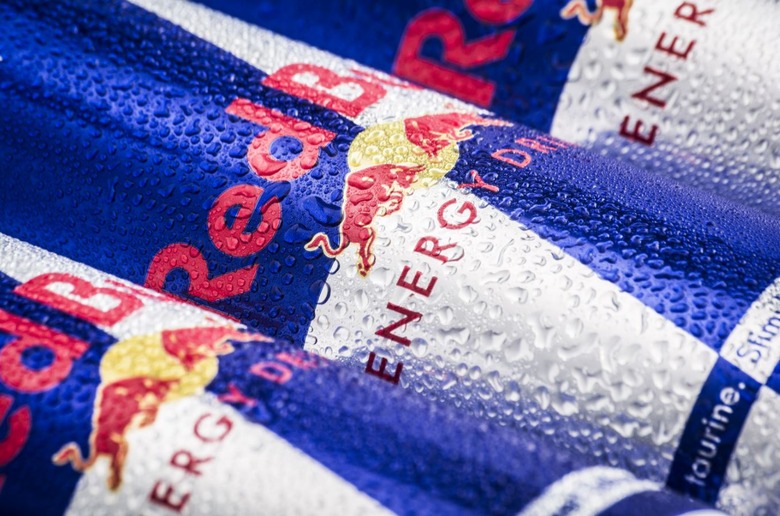5 Things You Didn't Know About Red Bull
Red Bull is a popular pick-me-up and mixer that sponsors a ton of extreme sporting events and teams, but did you know that it can trace its roots to a drink popular with Thai laborers? Here are five things you didn't know about Red Bull.
It's a Spinoff of a Drink Called Krating Daeng
A Thai energy drink popular with laborers, introduced in 1976 and called Krating Daeng, served as the initial inspiration for Red Bull. An Austrian entrepreneur named Dietrich Mateschitz discovered the drink while on a trip to Thailand in 1982 — he found that it cured his jetlag — and partnered with the drink's inventor, Chaleo Yoovidhya, to devise a carbonated, less-sweet version that was more in line with Western palates. It proved to be a good idea, turning both Yoovidhya and Mateschitz into multi-billionaires.
It Was Introduced in Austria First
Red Bull made its debut in Mateschitz's home country of Austria in 1987, marketed as a trendy high-end drink at popular ski resorts. It expanded to Hungary and Slovenia in 1992 and hit the U.S. market in 1997.
Two Versions Are Sold in China
Red Bull didn't make its way to China until 2014; two different versions are sold there. The "regular strength" version is sold in a short, yellow can that closely resembles that of Krating Daeng, and the "extra strength" version is sold in a can that looks more like the one we're used to. Neither is carbonated.
The Company Is No Longer Allowed to Say It "Gives You Wings"
It was pretty obvious that Red Bull wouldn't actually give you wings, but the company was still sued and forced to stop using the slogan in 2014. The plaintiffs didn't sue because they were expecting to grow wings, however; they sued because the slogan seemed to imply that the buzz the drink gives you would be superior to that of coffee. In reality, a can of Red Bull contains no more caffeine that your average cup of joe. In retribution, the company was also forced to pay out $13 million to consumers.
Taurine Is a Very Useful Compound
Red Bull contains taurine, an organic compound that actually accounts for about 0.1 percent of human body weight. Its name was derived from the Latin taurus, meaning bull. Coincidence? I think not.
Taurine actually has a lot of fundamental biological roles, including the function and buildup of skeletal muscle and the central nervous system. The chemical also aids in cardiovascular function, antioxidation, and modulation of calcium signaling.
